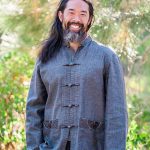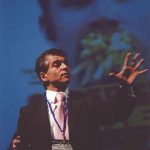Topics
Specific topics
José Antonio Herce is one of the leading experts on longevity and pensions in the Spanish-speaking world. With more than thirty years of experience in teaching as a professor of Economics at the Complutense University of Madrid, he belonged to the EU Commission's Graduate Corps between 1987 and 1991. He has also directed the Foundation for the Study of Applied Economics (FEDEA) and has been managing partner of the applied economics area of Analistas Financieros Internacionales, to which he continues to be linked as Associate Director of Afi and professor at its School of Finance.
Herce is a member of the Expert Forum of the Santa Lucía Savings and Pension Institute, chairs the Expert Council of the BBVA Pension Institute and is a member of the Global Advisory Board of the BBVA Center for Financial Education and Capabilities. As a writer he has published numerous articles in national and international academic journals and has written several monographs. José A. Herce has a degree and a doctorate in economics from the Complutense University of Madrid and a Master of Arts in economics from the University of Essex (United Kingdom)
He is a speaker focusing on issues of longevity, pensions, the labor market and the ramifications and relationships between and among these areas in the face of social change, lifestyles and technological change. He declares himself to be obsessed with the digital revolution, longevity and "Empty Spain".
CONFERENCES:
Extreme longevity
Every year that passes we live two and a half months more, invalidating the forecasts of all the experts. Our children will live to be 120 years old and will retire after their 80th birthday. The person who is to live a thousand years has already been born (of Grey). This spectacular development is going unnoticed by the social body and the institutions, which are determined to maintain the tyrannical barrier of 65 years, unchanged since the invention of Social Security. This brings all kinds of consequences and more than one problem to our social protection schemes that try to adapt to the 21st century with 20th century concepts and systems.
Automation
Robotization and other technological developments that accompany the dizzying digital transformation are redrawing the limits of work, productivity and relationships between individuals, society and organizations, facilitating a spectacular development of new ideas, business and value creation. They are a huge source of opportunities to renew all social compacts (from money to the welfare state), but in the face of this there are defensive barriers and institutional obstacles formulated from fear or ignorance of their potential, if not the vested interests of established economic, social and political powers. This situation contributes to draw the new dividing lines between the haves and have-nots, reinforcing in the collective imagination the feeling of fear and insecurity and exacerbating, in the end, the materialization of the perceived threats and the adoption of wrong collective and individual decisions.
Pensions
In the current debate on pensions, there is a lack of a long and deep look at the changes forced by extreme longevity and digital disruption. The dissociation that these developments operate in the individual and collective perception, the ideological polarization that surrounds them and the panic of the political and social representatives to courageously approach the debate and the possible solutions have encapsulated this debate that is now focused on proposals for the change of the social welfare schemes (public and private) that should have been adapted as it is proposed today almost half a century ago. This delay and lack of understanding of the challenges is already taking its toll on us in the form of an aspiration to return to the past that has brought us here.
Related speakers


Vijay Govindarajan
Dartmouth International Business Professor, Strategy and Innovation Expert, Director of the Tuck Center for Global Leadership


Alex Dakov
Conscious entrepreneur, promoter of sustainable projects, lecturer and motivator towards an ethical life model.
CONTRATAR CONFERENCIANTE






